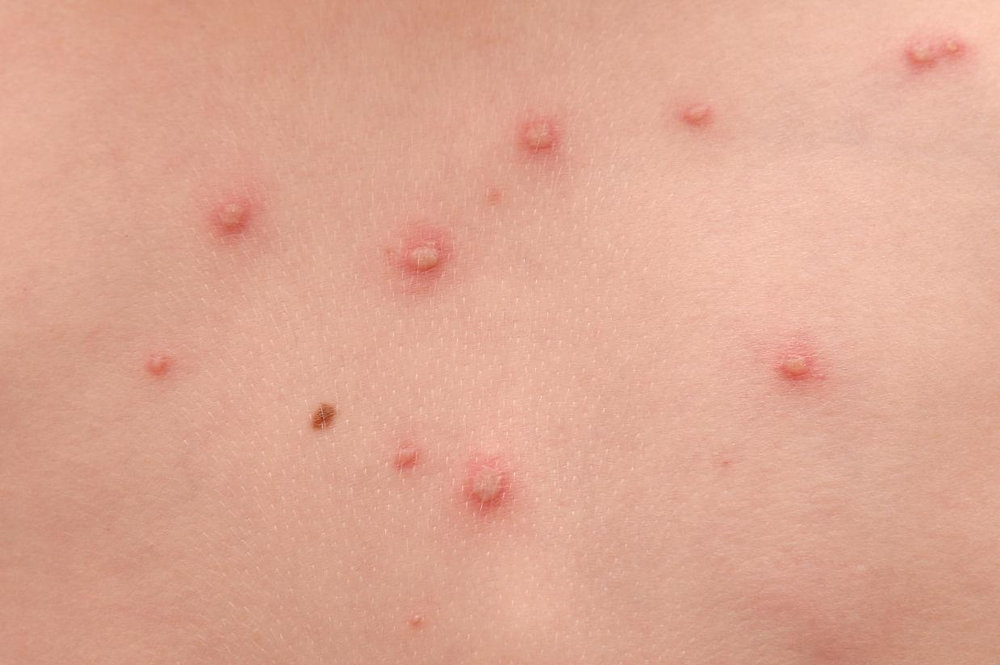
In a landmark move to bolster child health and reduce the societal burden of infectious diseases, Northern Ireland will offer free chickenpox vaccinations to eligible children starting in January 2026.
The initiative, announced by Health Minister Mike Nesbitt, will integrate a combined measles, mumps, rubella, and varicella (MMRV) vaccine into the routine childhood immunisation schedule, marking the first addition to the programme since the MenB vaccine in 2015.
The decision follows expert guidance from the Joint Committee on Vaccination and Immunisation (JCVI), which highlighted the significant impact of chickenpox on children’s health, hospital admissions, and associated economic costs.
The vaccine, which protects against varicella—the clinical term for chickenpox—has been safely administered in countries such as the United States, Canada, Australia, and Germany for decades.
Health Minister Mike Nesbitt welcomed the initiative, emphasising its benefits for both children and their families.
“We are empowering parents to safeguard their children against chickenpox and its potentially serious complications with a vaccine, which has been proven safe and effective in other countries across the world,” he said.
“This vaccine prioritises children’s wellbeing and will reduce school and nursery absences, while supporting parents by minimising the need for take time off work to care for sick children.
“I am committed to ensuring every child receives the best possible start in life, and the introduction of this vaccine into the routine childhood vaccination schedule will help achieve this.”
Chickenpox, caused by the varicella-zoster virus, is a highly contagious disease that affects most children before adolescence. While typically mild, it can lead to serious complications, including secondary bacterial infections, pneumonia, or, in rare cases, neurological issues.
Chief Medical Officer Professor Sir Michael McBride underscored the importance of the vaccine in mitigating these risks.
“Chickenpox is a highly contagious infectious disease. While most cases of chickenpox in children are relatively mild, many children are unwell for several days and in some cases, chickenpox can lead to hospitalisations from serious secondary infections or other complications,” he said.
“Immunisation is one of the most effective ways of preventing illness from infectious disease. I encourage parents and guardians of those eligible to avail of the vaccination, when invited to do so, to help protect their children from this disease.”
The introduction of the MMRV vaccine is expected to alleviate the broader societal impact of chickenpox. Research from the London School of Economics (LSE) estimates that childhood chickenpox results in at least £24 million in lost productivity annually in the UK, primarily due to parents taking time off work to care for sick children.
The study, presented at the 2022 European Congress of Clinical Microbiology & Infectious Diseases, found that nearly half of children with chickenpox miss school or nursery, with parents—predominantly working mothers—missing an average of five days of work per case.
Associate Professor Wittenberg, the lead author of the study, noted:
“Chickenpox, while rarely causing serious illness, does lead to loss of days of school or nursery among young children and consequent loss of workdays by their parents. The resulting lost productivity should be considered when decisions are made about policies to prevent chickenpox.”
The MMRV vaccine will be offered to eligible children based on age criteria, with detailed clinical guidance to be issued closer to the rollout date. Parents will be contacted directly to arrange vaccination appointments for their children, ensuring a streamlined process.
Authorities have stressed the importance of continuing with existing vaccination schedules in the meantime to maintain protection against other preventable diseases.
This initiative represents a significant step forward in public health policy in Northern Ireland, aligning the region with global best practices in childhood immunisation. By reducing the incidence of chickenpox, the programme aims to enhance child wellbeing, decrease healthcare costs, and support working families across the region.
The MMRV vaccine will be available to eligible children from 1st January 2026 As the programme approaches, further details on eligibility and scheduling will be provided to ensure parents are well-informed and prepared.
Research shows that chickenpox in childhood results in an estimated £24 million in lost income and productivity every year in the UK:
For information on the symptoms and treatment of Chickenpox, see the NI Direct page: Chickenpox | nidirect
